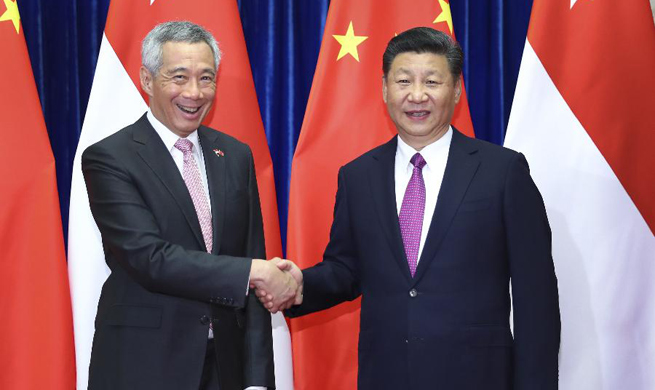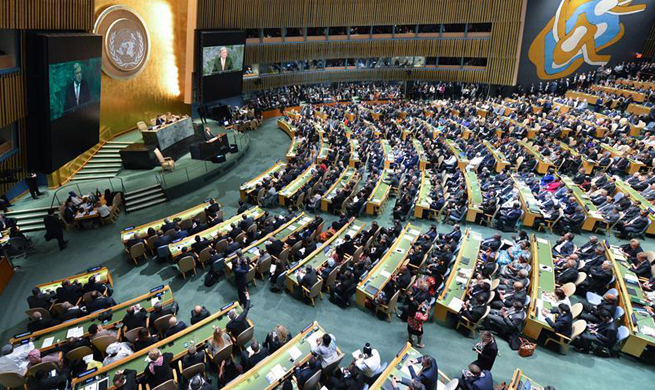BEIJING, Sept. 20 (Xinhua) -- China's value-added tax (VAT) reform, a key part of supply-side economic reform, has given impetus to economic growth and boosted entrepreneurship.
The VAT reform, which replaced all business taxes with value-added tax, was first piloted in Shanghai in 2012. It was expanded nationwide from May 1, 2016, with construction, real estate, financial and consumer services sectors included in the VAT regime.
Tangible goods have been subject to VAT for some time, but the levy on services was imposed on the value of a firm's sales. Such a crude system resulted in a tax on tax. VAT avoids this, as it is applied to the value added at each link in the production chain.
China's VAT rate structure was further cut from four to three tiers (6 percent, 11 percent and 17 percent) starting from July 2017, with tax rates for farm produce, tap water and books reduced from 13 to 11 percent.
Statistics from the Ministry of Finance showed that the reform has so far saved more than 1.6 trillion yuan (244 billion U.S. dollars) in taxes for businesses since 2012. From May 2016 to June 2017, taxes were reduced by over 850 billion yuan.
However, a lighter tax burden is not the central government's only aim, or it could have just cut business tax rates. An across-the-board replacement with VAT has far more significance on China's economic development.
Expanding VAT reform across all industries will encourage the development of the service sector, support an industry upgrade, stimulate consumption and support supply-side structural reform.
"The reform has streamlined the tax system, reduced double taxation and broken taxation barriers between manufacturing and service sectors to increase the weight of the service sector in China's economy," said Hu Genrong, a senior tax consultant with the PricewaterhouseCoopers.
China is counting on services, particularly high value-added services in finance and technology, to lessen the economy's traditional reliance on heavy industry and investment.
The service sector, which contributed 59.1 percent to economic growth in the first half of the year, has maintained strong growth. The service sector production index rose 8.3 percent in July, up from 7.8 percent for the same month of 2016, official data showed.
The government is also looking to the VAT reform to stimulate mass innovation and create an amicable climate for private enterprises through reducing corporate burdens.
"The reform has given rise to innovation, entrepreneurship and the development of new business models," said economist Zhang Lianqi, who is also a national political advisor.
Private firms, mostly small and medium-sized businesses, generate about 60 percent of China's GDP and around 80 percent of the country's jobs.
The government has moved to lower corporate burdens as part of the country's supply-side structural reform in past few years. A government work report released in March promised around 350 billion yuan in corporate tax cuts and around 200 billion yuan in reductions to business fees in 2017.
According to a report released by the World Bank, China's ranking in terms of the ease of doing business has moved up eight spots every year from 2013 to 2016, while the country's ranking for the ease of starting businesses climbed 31 places during that period.
To set up a sound, pro-business environment, the central government aims to further streamline taxation procedures and introduce information technology to make them easier and more efficient, according to a statement released after a State Council executive meeting last month.
It will also improve the situation in sectors including manufacturing, finance and construction, optimize the tax structure and set a reasonable tax rate.
Laws will be revised as soon as possible to reflect the new system, it said.

















